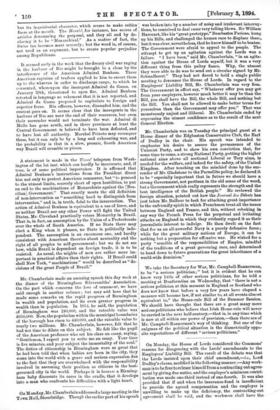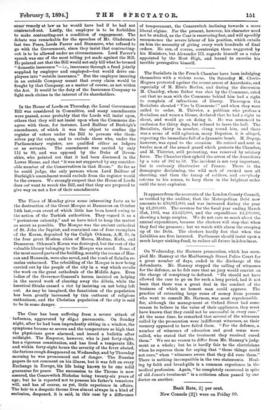On Monday, the House of Lords considered the Commons' reasons
for disagreeing with the Lords' amendments to the Employers' Liability Bill. The result of the debate was that the Lords insisted upon their chief amendment,—i.e., Lord Dudley's clause, modified in the following manner :—Any work- man is to be free to release himself from a contracting out agree- ment by giving due notice, and the employer's minimum contri- bution was made one-third instead of one-fourth. It was also provided that if and when the insurance-fund is insufficient to provide the agreed compensation and the employer is unwilling to make up the deficiency, the contracting-out agreement shall be void, and the workman shall have the
earner remedy at law- as he would have had if he had not -contracted-out. Lastly, the employer is to be forbidden to make contracting-out a condition of engagement. The debate was remarkable for the speeches of Mr. Gladstone's last two Peers, Lords Farrer and Stanmore, who refused to go with the Government, since they insist that contracting- -out is to be allowed under no circumstances. Lord Farrer's -speech was one of the most telling yet made against the Bill. He pointed out that the Bill would not only kill what he termed "domestic insurance "—i.e., insurance through a fund jointly Impplied by employer and employed—but would drive em- ployers into "outside insurance." But the employer insuring in an outside Company meant that every claim would be fought by that Company, as a matter of course, as not within the Act. It would be the duty of the Insurance Company to 'fight such claims in the interest of its shareholders.



































 Previous page
Previous page